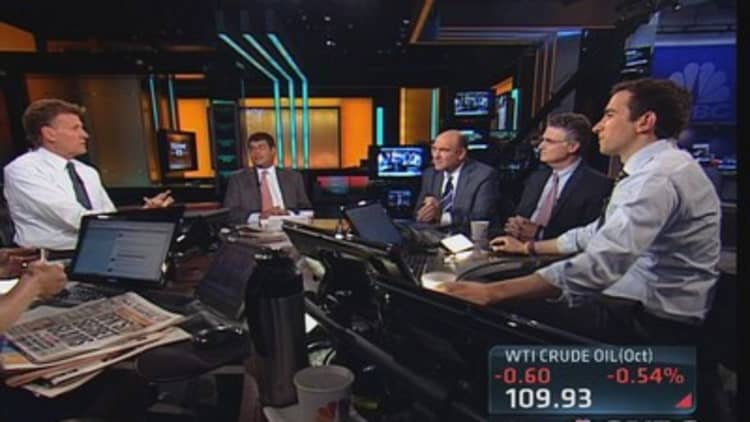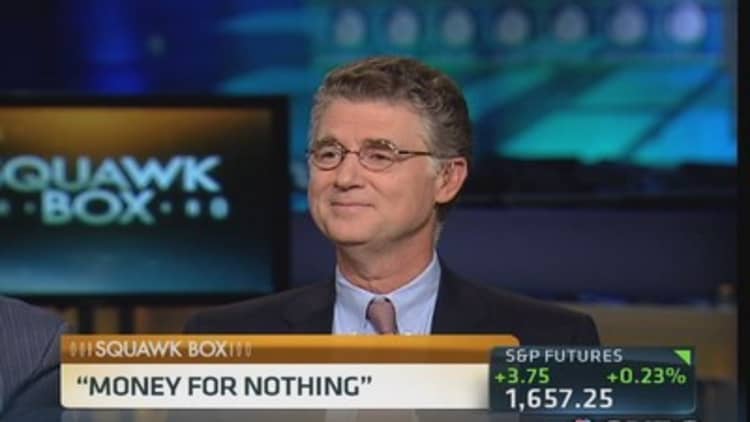
Depending on who you talk to, the unprecedented actions by the Federal Reserve in the wake of the 2008 financial crisis either saved the investment world or put it on the road to ruin.
As with most things, reality may lie somewhere in the middle.
"I think the Fed did a great job putting out the fire in 2007, 2008," former Treasury undersecretary Peter Fisher said on CNBC's "Squawk Box" Monday.
"[But] the Fed was playing with matches in 2003, 2004, 2005" by not raising interest rates quickly enough, he said—arguing the central bank is doing it again with its current accommodative monetary policies.
(Read More: Will Syria keep Larry Summers out of the Fed?)
Former Deputy Treasury Secretary Neal Wolin disagreed with Fisher, who's also a former executive vice president of the New York Fed.
"The idea that the Fed was on the wrong path and that the things it's undertaken to do during this period from 2008 until the present is anything other than critical—not just to our economy and the global economy—I think, is a big mistake," Wolin explained.
It's been nearly five years since Lehman Brothers filed for bankruptcy on September 15, 2008, but the debate still rages over what caused the financial crisis in the first place, why it cut so deeply into the U.S. economy, and why its effects still linger today.
(Flashback special report: The Fall of Leman Brothers)
The issues surrounding the Fed's moves since the crisis and whether the central bank's current policies are setting the stage for the next bubble are the basis of a new movie called "Money for Nothing," which is described as an independent, non-partisan documentary.

Fisher, now senior director at BlackRock Investment Institute, was among the "Who's Who" list of former and current Fed officials, economists, historians, and investors and traders interviewed for the film.
"When you push rates down this low, you get a zero, risk-free rate for three or four years, you know something is going to go wrong," Fisher argued, while questioning the benefits of the Fed's massive bond-buying program, known as quantitative easing.
Many economists believe central bank policymakers will be pulling back on that stimulus lever later this month by tapering the Fed's monthly $85 billion bond purchases.
—By CNBC's Matthew J. Belvedere. Follow him on Twitter @Matt_SquawkCNBC. CNBC Senior Economics Reporter Steve Liesman contributed to this report. Follow him on Twitter at @steveliesman.


